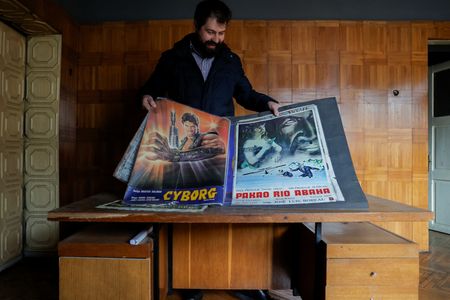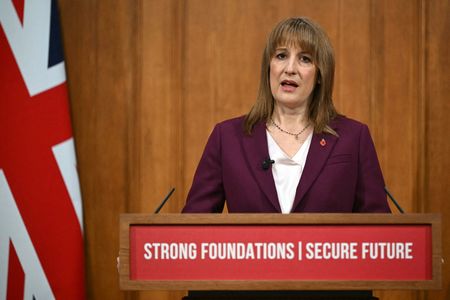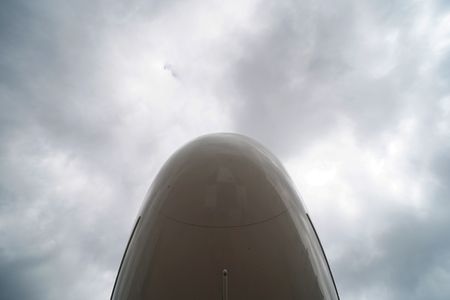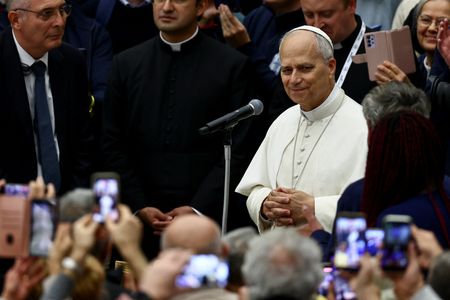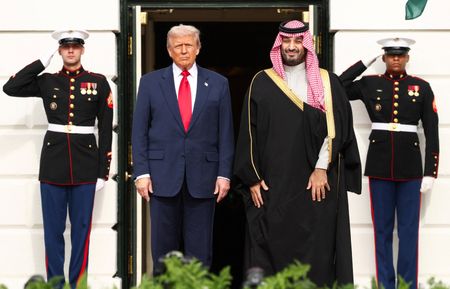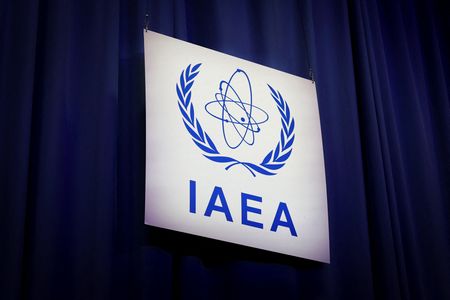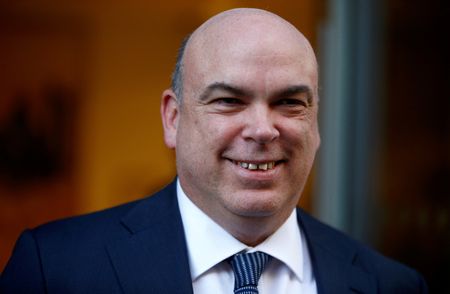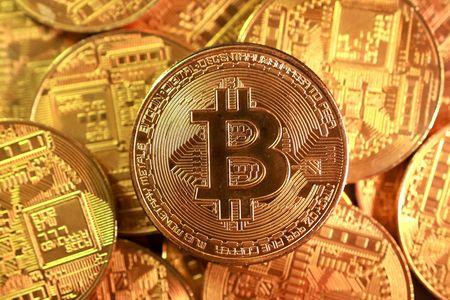By Edward McAllister and Fatos Bytyci
PRIZREN, Kosovo (Reuters) – For decades, the Lumbardhi cinema in Kosovo – Europe’s newest country – has given locals in the city of Prizren a window on the outside world. It has screened movies from Japan, China and the United States and hosted international artists for its annual documentary film festival.
But the venue has been dogged by financial problems and it was relying on a 1.5 million euro grant from the neighbouring European Union for renovations to its heating and drainage systems, according to its executive director, Ares Shporta.
Then on Oct. 7, Shporta received an email from EU officials saying the grant had been cancelled due to “ongoing measures imposed by the European Union on the government of Kosovo” – a reference to cuts to EU funding enacted in 2023 for what the bloc said was Prime Minister Albin Kurti’s role in stoking ethnic tensions in northern Kosovo, which has a Serb majority.
“It shook the trust of the community in us, but also in the EU, which claims to be in support of cultural diversity,” said Shporta in the lobby of the Lumbardhi, where a noisy space heater kept a smattering of patrons warm.
While the EU has not released a list of affected programs, two sources, including a senior diplomat, told Reuters more than a dozen projects totalling at least 150 million euros have stalled following the EU curbs. These include a 70-million-euro sewage treatment plant and a concert hall renovation. The sources spoke on condition of anonymity in order to speak candidly.
Pristina has downplayed the measures, but the fate of Lumbardhi and other projects identified by Reuters shows the impact on one of Europe’s poorest countries.
The issue has resurfaced as Kosovo – which is majority ethnic Albanian but home to some 100,000 ethnic Serbs – prepares for elections on Feb. 9. And it could weigh on Kurti’s chances of re-election, three analysts said.
Two private polls shared with Reuters showed Kurti’s Vetevendosje party and coalition partners with around 40% of the vote – down from the 50.2% received in 2021. Some Kosovans are concerned at their country’s isolation, according to political analyst Agon Maliqi.
“While most voters may be pleased that Kosovo has more control over the north, many might not be convinced that this is sustainable without international support,” he said.
Some EU states want to lift the measures because they have not altered Kurti’s policies and have hurt ordinary citizens, the senior diplomat and another official with direct knowledge of the situation told Reuters. But there is opposition from countries including Serbia-friendly France and Hungary.
The diplomat said the sanctions unfairly targeted Kosovo and not its northern neighbour Serbia, which has also played a role in inflaming tensions. But they added that there was no mechanism for rolling back the restrictions, despite their lack of efficacy.
An EU spokesperson described the measures as “temporary and reversible” but did not say which projects have been hit. They said that the EU would lift the sanctions if Kosovo de-escalated tensions in the north.
“Actions by the Kosovo Government…have so far not been conducive to this goal,” the spokesperson said.
ETHNIC TENSIONS
Kosovo gained its independence from Serbia in 2008 with backing from the United States, which included a 1999 bombing campaign against Serbian forces.
The face of former US President Bill Clinton smiling from a billboard above a boulevard in central Pristina. Some Kosovan political parties still fly a US flag in their headquarters.
That alliance had been strained under Kurti, who has promised but failed to repair relations with Serbia, which would open up a path to joining the EU.
The 50,000 Serbs who live in north Kosovo do not recognise Pristina’s institutions. Most see Belgrade as their capital and rely on it for wages, pensions and healthcare.
The EU has urged Pristina to establish an association of Serb municipalities to allow greater self-governance for Serbs. Fearing secession, Kurti has rejected the proposal and instead sought to erode Serbs’ autonomy in the north.
The prime minister defends his policy, saying he has reduced crime, created jobs, promoted peace and pushed back against a more powerful aggressor in Serbia.
“We have not done this against the Serbs: we have done it against Serbia because it is against Kosovo and our nation,” Kurti said in a campaign speech last month.
However, his move to install ethnic Albanian mayors in Serb majority areas, and to force ethnic Serbs to use Kosovan number plates on their cars, triggered the worst violence in a decade in 2023.
Despite the EU sanctions, Kurti persisted. His government outlawed the use of the Serbian dinar, closed Serb-run post offices and choked trade between the countries.
“Kosovo is isolated and penalized by the international community,” said Vlora Citaku from the opposition Democratic Party of Kosovo, who served as Kosovan ambassador to the United States.
“Every major success that we have achieved in the last two decades – liberation, independence – has been achieved because we worked closely with allies.”
It is unclear how the new US President Donald Trump’s administration will react. But Richard Grenell, Trump’s presidential envoy for special missions, gave a hint on Monday.
“Both Republicans and Democrats have criticised Kurti consistently for taking unilateral actions that destabilise the region,” he wrote on X. “The international community is united against Kurti.”
The US State Department did not respond to a request for comment.
ELECTION IMPACT
Kurti, a leftist and Albanian nationalist, has overseen some gains since coming to power in 2021. Unemployment has shrunk from 30% to around 10%, the minimum wage is up and last year the economy grew faster than the Western Balkans average.
Meanwhile, northern Kosovo feels as divided as ever. Education, healthcare, shops and cafes are segregated. Receipts from Serbian stores still give prices in dinar, not euros. Communities live apart – even the style of houses differ between the two groups.
Because Belgrade does not recognise Kosovo, it still pays salaries and pensions to Serbs there. But Serbs must return to Serbia to receive them since Kurti closed Serb-run post offices over the past year.
Meanwhile, the closure of some border crossings to Serbian goods has choked trade, forcing others to cross the frontier to buy medicines prescribed by Serb-run hospitals.
Serb pensioner Dragoljub Ivic, 65, who lives in Gracanica, a Serb-run municipality near Pristina, has to go back to Serbia every month to collect his 500-euro pension. The trip alone costs 50 euros, he said – 10% of his monthly allowance.
“In Kosovo, the people are paying for the politics,” said Ivic, who saves money by keeping to one room in his modest house, which he heats by opening the door of his wood-fired oven.
He says tensions are far worse now.
“They want to force the Serbs from Kosovo.”
POLLUTED WATER
People of all ethnicities are feeling the hit from the EU sanctions.
The EU had pledged 70 million euros to build the first sewage treatment plant to clean Pristina’s trash-clogged canal system. That plan is stalled, said Pristina deputy mayor, Alban Zogaj.
“After decades we were finally resolving the issue of treating sewage water which is polluting the river of Sitnica, one of the most polluted rivers in Europe.”
Raw sewage is released into the canals. Their banks are lined with abandoned kitchenware, boxes and bottles. When it rains and the water rises, overhanging trees become festooned with sheets of hanging plastic.
Sewage flows near the house of local resident Sanije Thaci, who cannot open her windows because of the smell.
“I have no words to describe what we are going through,” said Thaci, who stood next to one canal’s rushing grey stream.
“As you can see, there is no solution to be seen.”
(Reporting by Edward McAllister and Fatos Bytyci in Prizren; additional reporting by Andrew Gray in Brussels; editing by Daniel Flynn)

